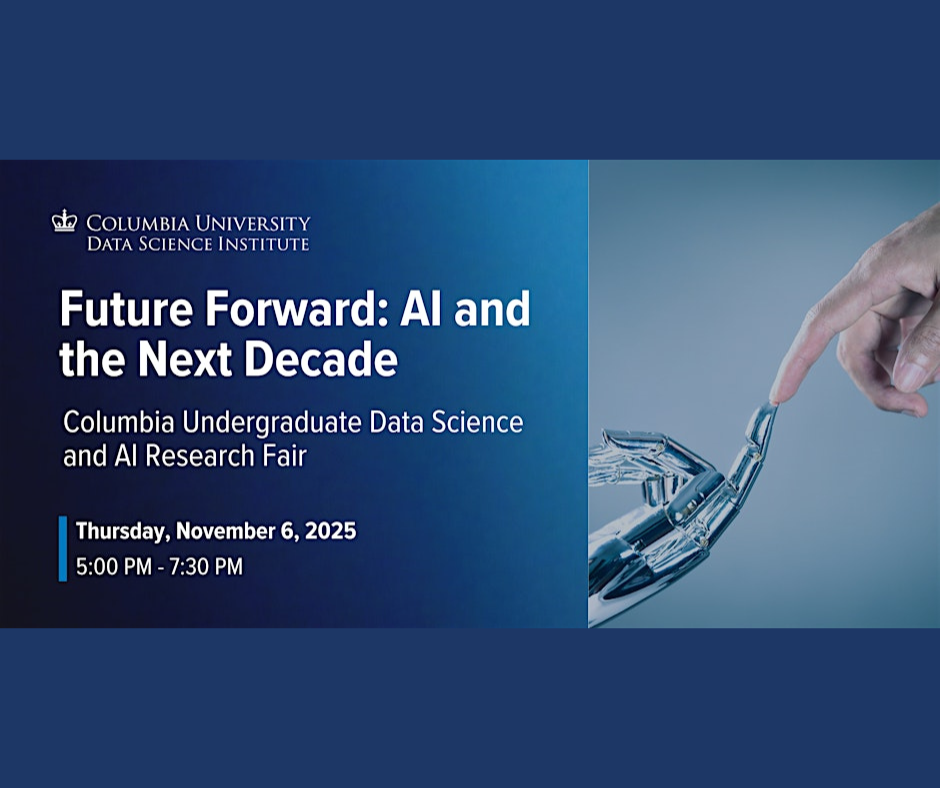Columbia Undergraduate Data Science and AI Research Fair 2025
Columbia Undergraduate Data Science and AI Research Fair 2025
Barnard Computer Science is excited to co-sponsor this event!
Over the past three years, AI has rapidly moved into classrooms, workplaces, and everyday life. Yet beyond the hype lies a deeper question: what kind of future do we want to build? As AI technologies become mainstream, we collectively face opportunities, responsibilities, and risks.
This year’s theme invites students to look past short-term novelty and consider how AI might create lasting impact over the next 10 years. Projects may explore both the potential and the limitations of AI across technological, social, and ethical dimensions. The fair offers students a space to imagine possible futures and new processes, whether they are optimistic, cautious, or reflective. Students can consider the following prompts as starting points to guide and inspire their submissions:
|
If you could design one new AI application to truly improve human life by 2035, what would it be? |
What does a positive future with AI look like? Who benefits from AI, and who is left out? |
It’s 2035. Will AI be heavily legislated, or a free-for-all? What future do you want to see? |
|
Could AI become a creative partner or even a friend? And what responsibilities would come with that? |
How do we weigh the environmental and social costs of AI against its potential benefits? |
How will AI reshape the skills needed for the next generation of students, workers, and leaders? |
|
How can we build systems that are transparent, fair, and resilient against misuse? |
What are the limits of automation? Where do we still need human judgment, creativity, and oversight? |
How can we move beyond today’s AI hype to build tools and practices that last for the next decade of growth? |
Hosted by: Data, Media and Society Center at the Data Science Institute, Columbia University.
For more information, please visit the Data Science Institute, Columbia University webpage for this event.
Co-Sponsors: Department of Statistics, Graduate School of Arts and Sciences, Columbia University; Department of Computer Science, Columbia Engineering; Department of Computer Science, Barnard College; Vagelos Computational Science Center, Barnard College.
